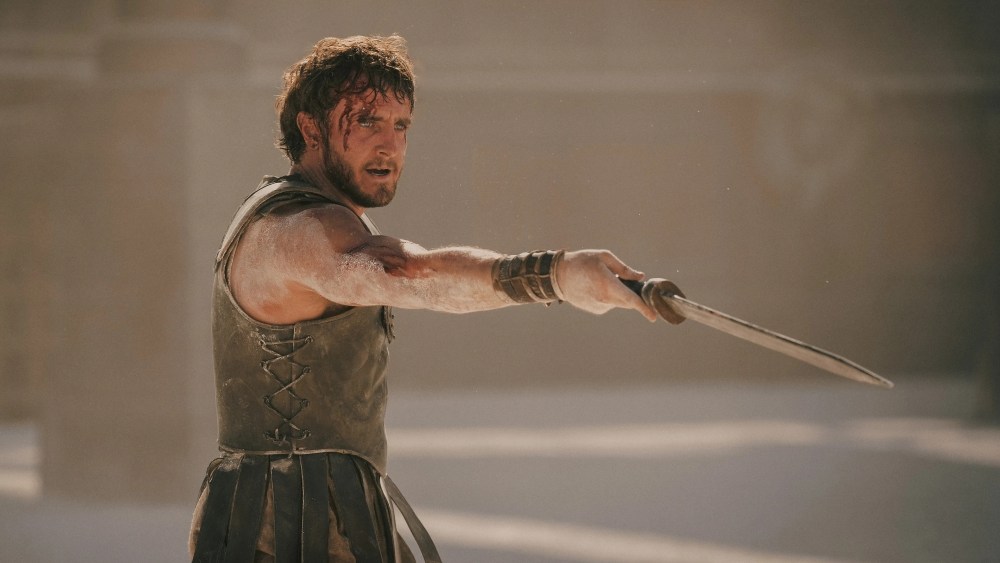How ‘Gladiator 2’ Music Composer Honored Hans Zimmer’s Original Score
Composer Harry Gregson-Williams understood the assignment when director Ridley Scott asked him to score “Gladiator 2.”
“It was to embody the spiritual essence of the first film, but move forward into a fresh new world,” Gregson-Williams explains.
In early talks with Scott, Gregson-Williams also knew he would have to compose at least 100 minutes of music.
The sequel picks up two decades after the first “Gladiator” film. It follows Lucius (Paul Mescal) — the grandson of Rome’s former emperor Marcus Aurelius and son of Lucilla (Connie Nielsen) and Maximus (Russell Crowe). Lucius is forced into the gladiator arena after Roman soldiers led by General Marcus Acacius (Pedro Pascal) invade his hometown. He is forced to fight as a gladiator much to the entertainment of young emperors, Caracalla and Geta (Joseph Quinn and Fred Hechinger).
In Gregson-Williams’ work, he would also have to find a way to thread in the motifs laid out by Hans Zimmer, who composed the score for the first film.
The jumping-off point was triggered by a line in the script that said “Lucius becomes Maximus.”
Says Gregson-Williams, “I listened to what the first score did, and I was drawn to the main theme which has this descending seventh repeating quite a lot. It has a noticeable leap, and I thought if I could embrace that in Lucius’ theme, I might be able to pull this off.”
As for Zimmer’s main “Gladiator” theme, that too can be heard. “We decided if we were going to use it, we’d use it very sparingly and very precisely,” says Gregson-Williams.
“Strength and honor,” was the first cue he wrote. The composer used a ney flute, an instrument primarily used in Persian music. “I layered an Ethiopian vocalist known as Gigi on top of that, and during the film, we are reminded of the MacGuffin of the film, the reason Lucius does what he does – it’s because the love of his life is blown away – and I found if I layered this vocalist on top of Lucius’ thematic material, it would keep her spirit alive.”
During Lucius’ journey as a gladiator, he has flashbacks of happier times; for those moments, Gregson-Williams used a “consort of viols.” “I found a group in London called Fretwork, and their sound is ancient but edgy. What I liked was how they played their instruments, with the bow underhand, as opposed to overhand.”
In building out his music toolbox, Gregson-Williams also took a trip to Northern Spain, where he found ancient war-like horns “which made a ferocious sound.”
As for working with Scott, Gregson-Williams says once he has his thematic material in place, then he’ll approach the director who never pushes him in any musical direction. “He’s all about how we’re telling the story. He talks about pace, tone, color, light and darkness.”


